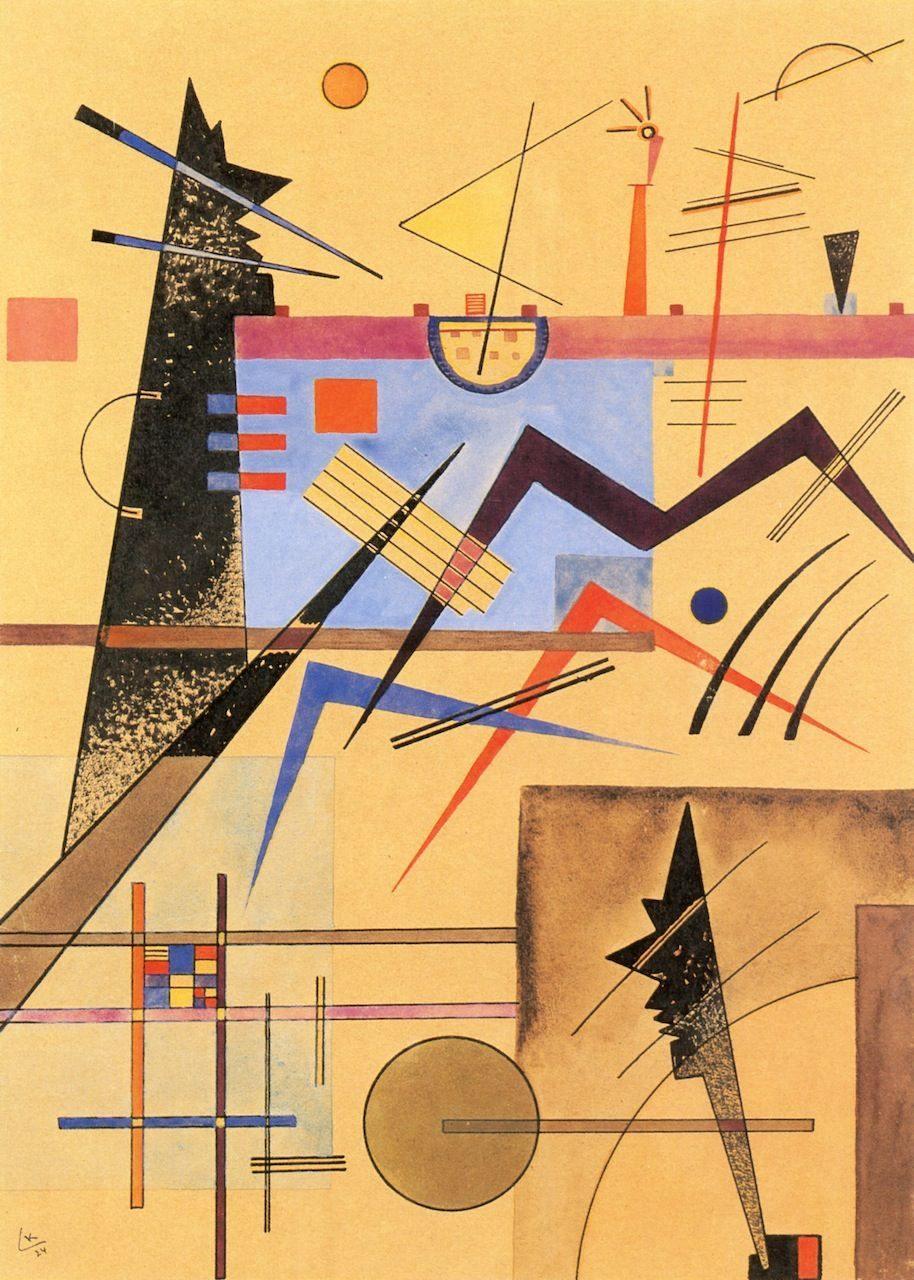Description
The painting Gray, Gray Brown No. 138 by Wassily Kandinsky is a masterpiece of abstract art. This piece was created in 1919, during a period when Kandinsky was experimenting with abstraction and the simplification of forms.
The composition of the painting is very interesting, as Kandinsky uses simple geometric shapes to create a sense of depth and movement. The painting is divided into two main sections: a light gray upper section and a dark brownish gray lower section. These two sections are separated by a diagonal line that creates a sense of tension and balance.
The use of color in this painting is very interesting. Kandinsky uses shades of gray and brown to create a sense of calm and serenity. However, he also uses small brushstrokes of red and yellow to create contrast and add a touch of energy to the work.
The history of this painting is also very interesting. It was created at a time when Kandinsky was experimenting with abstraction and the simplification of forms. This work is a perfect example of his artistic style, which is characterized by the use of simple geometric shapes and bright colors.
Also, there is a little-known aspect of this painting that is very interesting. Kandinsky is said to have created this work while in a trance-like state. He believed that painting was a form of spiritual communication and that he could connect with the spiritual world through his art.
In short, Wassily Kandinsky's painting Gray, Gray Brown No. 138 is a masterpiece of abstract art. Its composition, use of color, and the story behind its creation make it a fascinating piece for any art lover.

